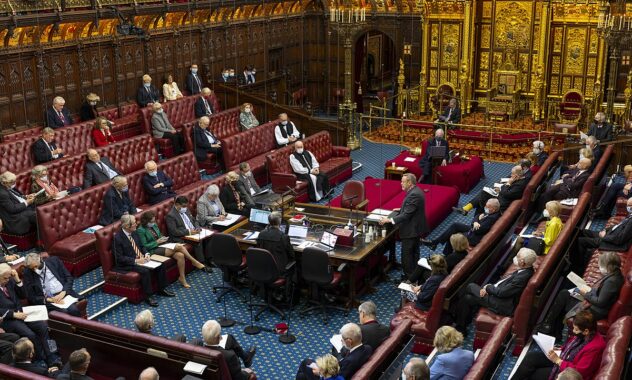Mayors and council leaders vow to thwart anti-strikes laws

Mayors and council leaders have warned Tory anti-strike laws will lead to “longer and more frequent” walkouts.
Fourteen leaders including Andy Burnham, Sadiq Khan and Steve Rotherham joined forces with unions as they vowed to “explore every possible option” to avoid issuing strike bans in their areas.
Passed in the summer, the Strikes (Minimum Service Levels) Act means workers in health, education, fire, transport, border security and nuclear decommissioning could be sacked if they go on strike, with unions facing fines of up to £1 million for not complying.
The mayors of London, Greater Manchester, Liverpool, West Yorkshire, South Yorkshire, Bristol and North of Tyne, and council leaders of Birmingham, Cardiff, Glasgow, Leeds, Liverpool, Newcastle and Nottingham and Sheffield said the laws would “place severe and unacceptable restrictions on the fundamental right of a worker to take industrial action to defend their pay and conditions.
“They are unfair, undemocratic, and likely to put the UK in breach of our international legal commitments.”
The mayors added regulations setting minimum service levels for the railways, ambulance services and border security, as well as the Act’s statutory code of practice – passed by Parliament on Wednesday – “would put impossible hurdles in the way of unions complying with this draconian legislation, [showing] that it is intended to stoke conflict not resolve it.
“As leaders in our towns and cities, we urge the government to abandon plans for minimum service levels in any service.
“We will work with trades unions and employers to explore every possible option to avert any prospect of work notices being issued in our areas.”
TUC general secretary Paul Nowak welcomed the “hugely important” pledge ahead of unions discussing how they take on the draconian anti-strike laws at a “once in a generation” special congress today.
The group’s scathing open letter comes after Welsh First Minister Mark Drakeford and Scottish First Minister Humza Yousaf pledged not to impose the notices, with EU and British post-Brexit watchdogs also warning they could breach the Good Friday agreement in Northern Ireland.
He said:
“Employers, politicians and civil society organisations have all condemned this legislation. Crucially – as the leaders of our towns and cities say – it will poison industrial relations and drag out disputes. These politicians all run services which could be affected. Unions won’t stop fighting this spiteful legislation until it’s repealed.”
Mayor of Greater Manchester Andy Burnham said:
“Ministers threatening to sack workers for going on strike during a dispute is both wrong and likely to be counterproductive. It also undermines devolution, as services in Greater Manchester such as transport are devolved, with no role for government in decisions such as service levels.”
Bristol Mayor Marvin Rees said:
“Minimum service levels are a desperate attempt by a government that has run out of ideas to stop workers taking action to defend their pay and conditions. Strike action is a human right and provides a basis for workers and employers to find solutions together.”
The government’s own impact assessment for the regulations covering the railway minimum service regulations found it would worsen industrial relations and threaten safety, it emerged yesterday.
RMT general secretary Mick Lynch said:
“Although these draconian measures are now law, the TUC Special Congress will signal the start of the industrial struggle against minimum service levels and any employer who seeks to deploy work notices against our members will find themselves in perpetual disputes with RMT.”
Public and Commercial Services (PCS) union general secretary Mark Serwotka said:
“This is one of the worst attacks on workers’ rights in living memory. They should drop these plans while they can or face a campaign of mass defiance and opposition.”
Employment law experts Professor Keith Ewing and Lord John Hendy KC predicted “a wide range of legal objections to the regulations” and that unions will lobby employers not to serve work notices. Labour has vowed to repeal the law.
Ben Sellers, director of think tank the Institute of Employment Rights, said:
“The minimum service legislation has never been about the interests of the public, but about curtailing the rights and freedoms of trade unions taking democratic industrial action in defence of their pay and conditions.
It’s very welcome that mayors up and down the country are prepared to support workers and their representative unions in refusing to issue work notices. In doing so, they will be joining the Welsh and Scottish governments, as well as many employers. This could well backfire on the government.”
This article was first published in the Morning Star. We thank them for their kind permission to reproduce it here.







